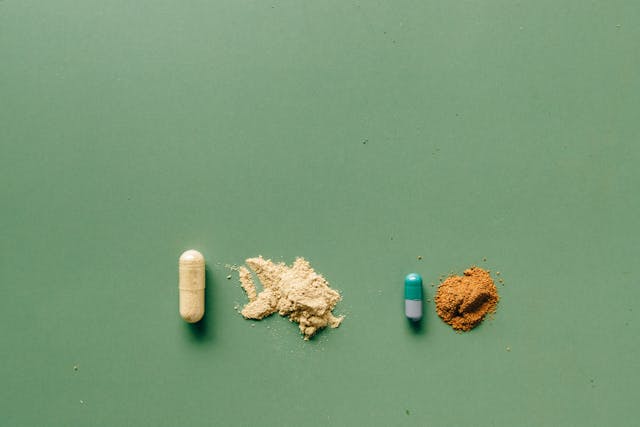Post Cycle Therapy, or PCT is a critical protocol for individuals who have completed a cycle of performance-enhancing substances. During a cycle, the body’s natural hormone production, particularly testosterone, is often suppressed, leading to potential side effects like muscle loss, fatigue, mood swings, and even gynecomastia.
PCT supplements are designed to help restore the body’s natural hormonal balance, minimize these side effects, and maintain the gains made after the cycle. In this article, we will explore some popular PCT supplements, focusing on their key ingredients, recommended dosages, and efficacy.
1. Ashwagandha
Ingredients and Function
Ashwagandha, also known as Withania somnifera, is an unique herb traditionally used in Ayurvedic medicine. It is known for reducing stress, enhancing stamina, and improving overall wellbeing. Recent studies have also highlighted its potential to boost testosterone levels and improve male fertility by increasing sperm quality and motility.
Ashwagandha works by modulating the body’s stress response, which can help to normalize cortisol levels. Lower cortisol levels are thought to be associated with higher testosterone production, making Ashwagandha a valuable component of a PCT supplement.
Dosage
The typical dosage of Ashwagandha extract ranges from 300 to 600 mg per day, standardized to contain around 5% withanolides. It is often taken in divided doses throughout the day to maintain consistent levels in the bloodstream.
Efficacy
Ashwagandha has been shown to be effective in reducing cortisol levels and increasing testosterone, which can be particularly beneficial after a steroid cycle. Its ability to support optimal sleep and reduce anxiety also supports recovery during PCT, making it a well-rounded supplement for hormonal balance.
2. Tribulus Terrestris
Ingredients and Function
Tribulus Terrestris is an herbal compound commonly used to enhance libido and support testosterone levels. It is believed to work by increasing luteinizing hormone (LH) levels, which in turn helps stimulate the production of testosterone.
Although its ability to significantly raise testosterone in healthy individuals is still debated, Tribulus Terrestris remains a popular choice in PCT due to its reputation for enhancing male vitality and sexual function.
Dosage
The recommended dosage of Tribulus Terrestris varies depending on the concentration of active ingredients like protodioscin. A typical dose ranges from 500 to 1500 mg per day, often standardized to contain 40-45% saponins.
Efficacy
Tribulus Terrestris is most effective in improving libido and sexual health, which can decline after a steroid cycle. While its impact on testosterone levels may be limited, it is still widely used in PCT for its general benefits on male reproductive health and vitality.
3. DIM (Diindolylmethane)
Ingredients and Function
Diindolylmethane (DIM) is a compound derived from the digestion of indole-3-carbinol. It is found in cruciferous vegetables like broccoli, cauliflower, and kale. DIM is known for its ability to modulate estrogen metabolism, promoting the conversion of stronger estrogens into less potent forms. This action is particularly useful during PCT, as it helps to reduce the risk of estrogenic side effects such as gynecomastia and water retention, which can occur when coming off a steroid cycle.
Dosage
A standard dosage of DIM for PCT purposes is between 100 to 300 mg per day. It is often taken in combination with other supplements that support hormonal balance.
Efficacy
DIM is effective in managing estrogen levels during PCT, making it a valuable addition to any post-cycle regimen. By promoting a healthier balance of estrogen, DIM helps to minize the risk of side effects caused by elevated estrogen levels, supporting a smoother recovery process.
4. Zinc
Ingredients and Function
Zinc is a vital mineral that impacts many bodily functions, including the immune system, protein synthesis, and, importantly, testosterone production. Zinc deficiency is known to impair testosterone production, which can be particularly problematic during PCT when the body is trying to restore its natural hormone levels.
Zinc supplementation helps to ensure that testosterone production is not hindered by a lack of this vital nutrient.
Dosage
The recommended dosage for zinc supplementation during PCT is typically 30 to 50 mg per day. It is often included in multivitamin formulas or taken as a standalone supplement, commonly in the form of zinc picolinate or zinc gluconate for better absorption.
Efficacy
Zinc is highly effective in supporting testosterone levels, particularly in individuals who may be deficient. Its role in maintaining healthy testosterone production makes it an essential component of PCT, helping to ensure that the body’s natural hormonal balance is restored efficiently.
Conclusion
Post-Cycle Therapy is a important protocol in the use of anabolic steroids or prohormones, aimed at restoring natural hormone production and reducing the risk of adverse effects. Supplements like Ashwagandha, Tribulus Terrestris, DIM, and Zinc offer various benefits that can support this recovery process.
Ashwagandha helps to reduce stress and boost testosterone, while Tribulus Terrestris enhances libido and vitality. DIM is effective in managing estrogen levels, reducing the risk of side effects like gynecomastia, and Zinc is essential for supporting natural testosterone production.
By understanding the roles, dosages, and efficacy of these popular PCT supplements, individuals can better navigate their post-cycle phase, maintaining their gains and overall wellbeing.
